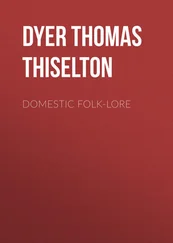Thomas Dyer - The Ghost World
Здесь есть возможность читать онлайн «Thomas Dyer - The Ghost World» — ознакомительный отрывок электронной книги совершенно бесплатно, а после прочтения отрывка купить полную версию. В некоторых случаях можно слушать аудио, скачать через торрент в формате fb2 и присутствует краткое содержание. Жанр: foreign_antique, foreign_prose, на английском языке. Описание произведения, (предисловие) а так же отзывы посетителей доступны на портале библиотеки ЛибКат.
- Название:The Ghost World
- Автор:
- Жанр:
- Год:неизвестен
- ISBN:нет данных
- Рейтинг книги:5 / 5. Голосов: 1
-
Избранное:Добавить в избранное
- Отзывы:
-
Ваша оценка:
- 100
- 1
- 2
- 3
- 4
- 5
The Ghost World: краткое содержание, описание и аннотация
Предлагаем к чтению аннотацию, описание, краткое содержание или предисловие (зависит от того, что написал сам автор книги «The Ghost World»). Если вы не нашли необходимую информацию о книге — напишите в комментариях, мы постараемся отыскать её.
The Ghost World — читать онлайн ознакомительный отрывок
Ниже представлен текст книги, разбитый по страницам. Система сохранения места последней прочитанной страницы, позволяет с удобством читать онлайн бесплатно книгу «The Ghost World», без необходимости каждый раз заново искать на чём Вы остановились. Поставьте закладку, и сможете в любой момент перейти на страницу, на которой закончили чтение.
Интервал:
Закладка:
‘Thy faith and troth thou shalt na get,
And our true love shall never twin,
Until ye tell what comes o’ women,
I wot, who die in strong travailing.
‘Their beds are made in the heavens high,
Down at the foot of our Lord’s knee,
Weel set about wi’ gilliflowers,
I trow sweet company for to see.
‘Oh, cocks are crowing a merry midnight,
I wot the wild fowls are boding day;
The psalms of heaven will soon be sung,
And I, ere now, will be missed away.’
Then she has ta’en a crystall wand,
And she has stroken her throth thereon;
She has given it him out of the shot-window,
Wi’ many a sigh and heavy goan.
‘I thank ye, Margaret; I thank ye, Margaret;
And aye, I thank ye heartilie;
Gin ever the dead come for the quick,
Be sure, Margaret, I’ll come for thee.’
Then up and crew the milk-white cock,
And up and crew the gray;
Her lover vanished in the air,
And she gaed weeping away.
Madness, again, during life, is said occasionally to produce restlessness after death. ‘Parson Digger, at Condover,’ remarked an old woman to Miss Jackson, 69 69 Shropshire Folk-lore , p. 119.
‘he came again. He wasn’t right in his head, and if you met him he couldn’t speak to you sensibly. But when he was up in the pulpit he’d preach, oh! beautiful!’ In Hungary, there are the spirits of brides who die on their wedding-day before consummation of marriage. They are to be seen at moonlight, where cross-roads meet. And it is a Danish tradition that a corpse cannot have peace in the grave when it is otherwise than on its back. According to a Scotch belief, excessive grief for a departed friend, ‘combined with a want of resignation to the will of Providence, had the effect of keeping the spirit from rest in the other world. Rest could be obtained only by the spirit coming back, and comforting the mourner by the assurance that it was in a state of blessedness.’ 70 70 Gregor’s Folk-lore of North-East of Scotland , p. 69.
The ghosts of those, again, who had some grievance or other in life are supposed to wander. The Droitwich Canal, in passing through Salwarpe, Worcestershire, is said to have cut off a slice of a large old half-timbered house, in revenge for which act of mutilation, the ghost of a former occupier revisited his old haunts, and affrighted the domestics.
Once more, according to another Animistic conception which holds a prominent place in the religion of uncultured tribes, the soul at death passes through some transitionary stages, finally developing into a demon. In China and India this theory is deeply rooted among the people, and hence it is customary to offer sacrifices to the souls of the departed by way of propitiation, as otherwise they are supposed to wander to and fro on the earth, and to exert a malignant influence on even their dearest friends and relatives. Diseases, too, are regarded as often being caused by the wandering souls of discontented relatives, who in some cases are said to re-appear as venomous snakes. 71 71 Sir John Lubbock’s Origin of Civilisation , p. 134.
Owing to this belief, a system of terror prevails amongst many tribes, which is only allayed by constantly appeasing departed souls. Believing in superstitions of this kind, it is easy to understand how the uncivilised mind readily lays hold of the doctrine that the souls of the departed, angry and enraged at having had death thrust on them, take every opportunity of wandering about, and annoying the living, and of wreaking their vengeance on even those most nearly related to them. In this phase of savage belief may be traced the notion of Manes worship found under so many forms in foreign countries. Indeed, once granted that the departed soul has power to affect the living, then this power attributed to it is only one of degree. With this belief, too, may be compared the modern one of worship of the dead; and as Dr. Tylor remarks: ‘A crowd of saints, who were once men and women, now form an inferior order of deities active in the affairs of men, and receiving from them reverence and prayer, thus coming strictly under the definition of Manes.’ 72 72 Primitive Culture , ii. p. 120.
A further illustration may be adduced in the patron deities of particular trades and crafts, and in the imposing array of saints supposed to be specially interested in the particular requirements of mankind.
CHAPTER VI
GHOSTS OF THE MURDERED
It is commonly supposed that the spirits of those who have suffered a violent or untimely death are baneful and malicious beings; for, as Meiners conjectures in his ‘History of Religions,’ they were driven unwillingly from their bodies, and have carried into their new existence an angry longing for revenge. Hence, in most countries, there is a dread of such harmful spirits; and, among the Sioux Indians the fear of the ghost’s vengeance has been known to act as a check to murder. The avenging ghost often comes back to convict the guilty, and appears in all kinds of strange and uncanny ways. Thus the ghost of Hamlet’s father (i. 5) says:
I am thy father’s spirit,
Doomed for a certain time to walk the night,
And for the day confined to fast in fires,
Till the foul crimes, done in my days of nature,
Are burnt and purged away.
Till the crime has been duly expiated, not only is the spirit supposed to be kept from its desired rest, but it flits about the haunts of the living, that, by its unearthly molestation, it may compel them to make every possible reparation for the cruel wrong done. Any attempt to lay such a ghost is ineffectual, and no exorcist’s art can induce it to discontinue its unwelcome visits. Comparative folk-lore proves how universal is this belief, for one of the most popular ghost stories in folk-tales is that which treats of the murdered person whose ghost hovers about the earth with no gratification but to terrify the living.
The Chinese have a dread of the wandering spirits of persons who have come to an unfortunate end. At Canton, in 1817, the wife of an officer of Government had occasioned the death of two female domestic slaves, from some jealous suspicion it was supposed of her husband’s conduct towards the girls; and, in order to screen herself from the consequences, she suspended the bodies by the neck, with a view to its being construed into an act of suicide. But the conscience of the woman tormented her to such a degree that she became insane, and at times personated the victims of her cruelty; or, as the Chinese supposed, the spirits of the murdered girls possessed her, and utilised her mouth to declare her own guilt. In her ravings she tore her clothes, and beat her own person with all the fury of madness; after which she would recover her senses for a time, when it was supposed the demons quitted her, but only to return with greater frenzy, which took place a short time previous to her death. 73 73 The Chinese : J. F. Davis, 1836, ii. pp. 139, 140.
According to Mr. Dennys, 74 74 Folk-lore of China , p. 73.
the most common form of Chinese ghost story is that wherein the ghost seeks to bring to justice the murderer who shuffled off its mortal coil.
The following tale is told of a haunted hill in the country of the Assiniboins. Many summers ago a party of Assiniboins pounced on a small band of Crees in the neighbourhood of Wolverine Knoll. Among the victors was the former wife of one of the vanquished, who had been previously captured by her present husband. This woman directed every effort in the fight to take the life of her first husband, but he escaped, and concealed himself on this knoll. Wolverine – for this was his name – fell asleep, and was discovered by this virago, who killed him, and presented his scalp to her Assiniboin husband. The knoll was afterwards called after him. The Indians assert that the ghosts of the murderess and her victim are often to be seen from a considerable distance struggling together on the very summit of the height. 75 75 See Dorman’s Primitive Superstitions , p. 304.
Интервал:
Закладка:
Похожие книги на «The Ghost World»
Представляем Вашему вниманию похожие книги на «The Ghost World» списком для выбора. Мы отобрали схожую по названию и смыслу литературу в надежде предоставить читателям больше вариантов отыскать новые, интересные, ещё непрочитанные произведения.
Обсуждение, отзывы о книге «The Ghost World» и просто собственные мнения читателей. Оставьте ваши комментарии, напишите, что Вы думаете о произведении, его смысле или главных героях. Укажите что конкретно понравилось, а что нет, и почему Вы так считаете.












